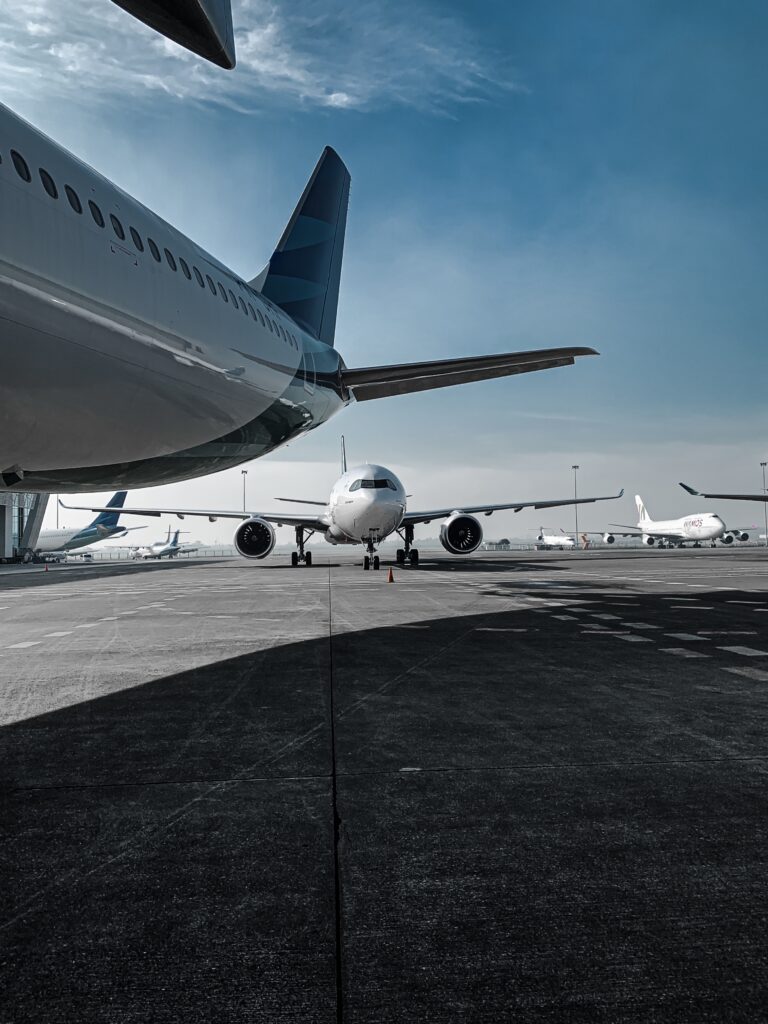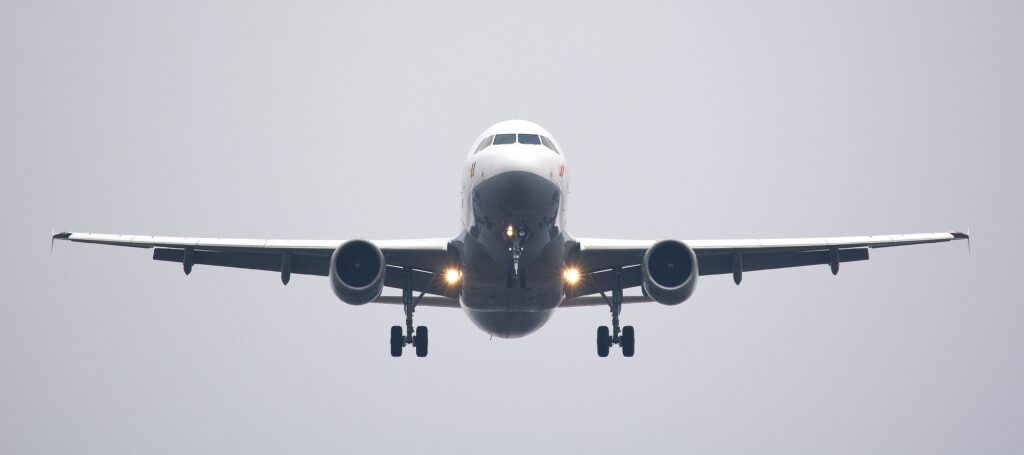International Airlines Group’s low-cost long-haul brand Level is set to expand its route offerings with a new service between Miami and Barcelona. Starting on March 31, 2024, the airline will operate three flights per week on Sunday, Wednesday, and Friday using Airbus A330-200 aircraft with 314 seats. Level, a subsidiary of IAG based in Barcelona, already offers connections to various destinations in Europe through Vueling, another airline in the group. With the addition of the Miami route, Level intends to strengthen its commitment to connecting Barcelona with distant destinations in America, providing a broader and more robust product to its customers.

Accommodation
When it comes to travel, finding suitable accommodation is crucial. Whether it’s a hotel, apartment, or other lodging options, travelers need a comfortable and convenient place to stay. Accommodation options vary in terms of location, amenities, and price range, allowing individuals to find the perfect fit for their needs. In recent years, there has been a rise in alternative accommodations such as vacation rentals and homestays, providing travelers with more choices and flexibility. Additionally, technology has made it easier than ever to search and book accommodation, with online booking platforms offering a wide selection of options.
Hotel Options
Hotels remain one of the most popular choices for travelers due to their convenience and range of services. From budget-friendly options to luxury resorts, hotels cater to a wide range of preferences and budgets. Many hotels offer amenities such as restaurants, gyms, and business centers, making them suitable for both leisure and business travelers. Additionally, loyalty programs and partnerships with travel agencies can provide benefits and discounts for frequent guests.
Vacation Rentals
Vacation rentals have become increasingly popular among travelers seeking a more personalized and home-like experience. With platforms such as Airbnb and VRBO, individuals can rent out entire homes, apartments, or even rooms in someone else’s property. These accommodations often offer more space, privacy, and the ability to cook meals, making them a great choice for families or longer stays. However, it’s important for travelers to research and read reviews before booking to ensure the legitimacy and quality of the rental.
Homestays
Homestays provide a unique opportunity for travelers to immerse themselves in the local culture and interact with the locals. Through platforms like Homestay.com and Couchsurfing, individuals can stay with local hosts who offer a spare room or couch in their home. Homestays are often more affordable than hotels and can provide valuable insights and recommendations from the hosts. However, it’s important for travelers to communicate their expectations and preferences with the hosts to ensure a comfortable and enjoyable stay.
Air Travel
Air travel is one of the most common and efficient modes of transportation for long-distance travel. Whether it’s for business or leisure, flying allows individuals to reach their destinations quickly and easily. With numerous airlines operating domestic and international routes, travelers have a wide range of options when it comes to air travel.
Types of Airlines
There are different types of airlines that cater to various travel needs and budgets. Full-service airlines offer a range of amenities such as meals, in-flight entertainment, and baggage allowances. These airlines generally operate on long-haul routes and provide a higher level of service. Low-cost carriers, on the other hand, focus on providing affordable fares with minimal additional services. These airlines often operate on short-haul routes and may charge extra for amenities such as meals and baggage. It’s important for travelers to consider their priorities, preferences, and budget when choosing an airline.
Booking and Check-In Process
The booking and check-in process for air travel has become increasingly streamlined and convenient thanks to technology. Travelers can easily search for flights, compare prices, and book tickets online through airline websites or third-party booking platforms. In addition, many airlines offer mobile apps that allow passengers to check-in, access boarding passes, and receive real-time flight updates. Online check-in and self-service kiosks at airports have also reduced the need for lengthy queues and paper tickets, making the process more efficient for travelers.
Safety and Security
Safety and security are of utmost importance when it comes to air travel. Airlines and regulatory bodies have strict protocols and regulations in place to ensure the safety of passengers and crew. This includes regular maintenance checks on aircraft, thorough security screenings, and strict adherence to aviation safety standards. Additionally, airlines provide safety demonstrations and instructions to passengers before take-off, emphasizing the use of seatbelts, emergency exits, and life vests. It’s crucial for travelers to follow all safety instructions and guidelines provided by the airline and crew members.

Ground Transport
Ground transport refers to any form of transportation that takes place on land, such as trains, buses, taxis, and rental cars. This mode of transport is essential for travelers to get to and from airports, hotels, meetings, and other destinations within their chosen location. The availability and efficiency of ground transport options can greatly impact the overall travel experience.
Public Transportation
Public transportation, such as trains, buses, and trams, is a popular choice for travelers who want to explore a city or region. Public transport systems are often well-developed in urban areas and offer convenient and cost-effective options for getting around. Travelers can purchase tickets or passes that allow unlimited travel within a certain period or for a specific number of journeys. Public transportation is also a more sustainable option as it reduces congestion on the roads and the carbon emissions associated with private cars.
Taxis and Ride-Sharing Services
Taxis and ride-sharing services like Uber and Lyft provide a convenient and flexible option for travelers, especially when traveling with luggage or in groups. These services allow individuals to request a ride through a mobile app and provide door-to-door transportation. Taxis and ride-sharing services are particularly useful in areas with limited public transportation options or during late hours when public transport may be less frequent. However, it’s important for travelers to research local regulations and pricing to ensure a safe and fair experience.
Rental Cars
Rental cars offer travelers the freedom and flexibility to explore at their own pace. Whether it’s for a road trip or for day-to-day transportation, rental cars provide a convenient option for travelers who prefer to have their own vehicle. Rental car companies offer a range of vehicle types and sizes to suit different needs and budgets. It’s important for travelers to consider factors such as driving regulations, insurance coverage, and fuel costs before renting a car in a foreign destination.
Management
Effective travel management is crucial for organizations to ensure smooth and efficient business travel operations. Managing travel involves a range of tasks, from booking flights and accommodation to managing expenses and ensuring compliance with travel policies. By implementing proper management strategies and utilizing technology solutions, organizations can optimize their travel processes and improve the overall travel experience for employees.
Travel Policies and Guidelines
Establishing clear travel policies and guidelines is essential for organizations to ensure consistency and compliance in travel-related activities. These policies outline the preferred vendors, booking procedures, allowable expenses, and reimbursement processes. Travel policies should be communicated to employees and regularly reviewed and updated to align with changing travel trends and regulations. By having well-defined travel policies, organizations can control costs, ensure employee safety, and streamline the travel process.
Travel Booking and Approval Process
Organizations can streamline the travel booking and approval process by implementing online booking platforms and approval workflows. Online booking platforms provide employees with access to a range of flight and accommodation options, allowing them to compare prices and make informed decisions. Approval workflows ensure that travel requests are reviewed and approved by the appropriate stakeholders before bookings are made. Automating these processes reduces the administrative burden on employees and ensures compliance with travel policies.
Expense Management
Managing travel expenses is a critical aspect of travel management. Organizations can utilize expense management software and tools to streamline the process of recording, submitting, and reimbursing travel expenses. These tools allow employees to easily capture receipts, categorize expenses, and submit expense reports for approval. Expense management software also enables organizations to track and analyze travel expenses, identify cost-saving opportunities, and ensure compliance with expense policies and regulations.
Travel Risk Management
Travel risk management involves identifying and mitigating potential risks and ensuring the safety and well-being of travelers. This includes monitoring travel advisories, providing pre-trip safety information, and implementing emergency response plans. Organizations can partner with travel management companies or utilize risk management software to track and communicate with travelers, provide real-time updates in case of emergencies, and ensure duty of care obligations are met. By prioritizing travel risk management, organizations can minimize disruptions and protect their employees during travel.

Meetings
Meetings are an integral part of business travel, allowing individuals to collaborate, network, and exchange ideas and information. Whether it’s a small team meeting or a large conference, effective meeting management is essential to ensure the success and productivity of these gatherings. From planning and organizing to execution and follow-up, there are various elements to consider when it comes to meeting management.
Meeting Planning and Logistics
Planning a successful meeting involves careful consideration of various logistics and details. This includes selecting an appropriate venue, arranging for necessary equipment and technology, and coordinating schedules and travel arrangements for attendees. Meeting planners must also consider factors such as dietary restrictions, accessibility requirements, and cultural considerations to ensure a positive and inclusive experience for all participants. Utilizing event management software can simplify the planning process and help organizers stay organized and efficient.
Meeting Facilitation and Engagement
During the meeting itself, effective facilitation and engagement techniques can ensure that participants are actively involved and productive. This may include setting clear objectives and agendas, managing time effectively, and encouraging participation and collaboration. Meeting facilitators can utilize various tools and techniques such as icebreakers, breakout sessions, and interactive presentations to keep attendees engaged and foster meaningful discussions. It’s important to create an inclusive and respectful environment that allows all participants to contribute their ideas and perspectives.
Virtual Meetings
In recent years, virtual meetings have become increasingly popular due to advancements in technology and the rise of remote work. Virtual meetings allow participants to connect and collaborate regardless of their location, saving time and travel costs. Platforms such as Zoom, Microsoft Teams, and GoToMeeting offer video conferencing and screen-sharing capabilities, replicating the experience of an in-person meeting. To ensure the success of virtual meetings, organizers should provide clear instructions and guidelines for participants, optimize the technology setup, and facilitate effective communication and collaboration.
Post-Meeting Follow-Up
Following a meeting, it’s important to have a clear plan for post-meeting follow-up and communication. This may involve sharing meeting minutes or action items, sending thank-you notes or follow-up emails, and tracking progress on agreed-upon tasks. Meeting organizers should ensure that all necessary documentation and materials are shared promptly and that any outstanding questions or concerns are addressed. This allows for continuity and accountability following the meeting and ensures that the intended outcomes and objectives are achieved.
On the Move
Travel often involves being on the move, whether it’s commuting between meetings, exploring a new city, or navigating public transportation. To make the most of their time and stay productive, travelers can utilize various strategies and tools to enhance their experience on the move.
Time Management
Managing time effectively is essential for travelers to make the most of their schedules and optimize productivity. This may involve planning travel routes and itineraries in advance, utilizing travel time for tasks such as reading or catching up on emails, and setting realistic expectations for meeting and travel durations. Time management tools such as calendar apps, task management software, and productivity techniques like the Pomodoro Technique can help travelers stay organized and focused while on the move.
Productivity Tools and Apps
Technology has provided travelers with a range of productivity tools and apps that can enhance their efficiency and organization. From note-taking and document storage apps to language translation and currency conversion tools, these apps can streamline various aspects of travel. Mobile apps from airlines, hotels, and transportation providers can also provide real-time updates, digital boarding passes, and access to loyalty programs, making travel more seamless and convenient.
Health and Well-being
Staying healthy and maintaining well-being while on the move can contribute to a more enjoyable and productive travel experience. Travelers should prioritize adequate sleep, hydration, and nutrition to ensure their energy levels and focus are optimized. It’s also important to incorporate physical activity into travel routines, whether it’s through hotel gyms, walking tours, or exercise apps. Travelers should also be aware of the potential health risks associated with travel, such as jet lag and exposure to new environments, and take necessary precautions.
Cultural Awareness and Etiquette
Traveling to different countries and interacting with individuals from diverse backgrounds requires cultural awareness and sensitivity. It’s important for travelers to familiarize themselves with the local customs, traditions, and social norms of their destination to ensure respectful and appropriate behavior. This includes understanding greetings, gestures, and dress codes, as well as dining etiquette and business practices. By demonstrating cultural awareness, travelers can build rapport, avoid misunderstandings, and foster positive relationships with locals and colleagues.

Payment & Expense
Managing travel expenses and payments efficiently is crucial for both travelers and organizations. Keeping track of expenses, ensuring timely reimbursements, and optimizing payment methods can help streamline the travel process and minimize financial burdens. With advancements in technology and the availability of various payment options, there are numerous ways to manage payments and expenses during travel.
Corporate Travel Cards
Corporate travel cards are a popular payment method for business travelers, offering convenience and streamlined expense management. These cards are typically issued by organizations and linked to specific travel and expense policies. Corporate travel cards allow employees to make necessary purchases while traveling, and expenses can be easily tracked and reconciled by the organization. Additionally, corporate cards often come with benefits such as travel insurance, rewards programs, and enhanced security.
Expense Tracking Software
Expense tracking software and apps provide travelers with a digital platform to capture and manage their expenses on the go. These tools allow users to easily scan and upload receipts, categorize expenses, and generate expense reports. Expense tracking software can help streamline the reimbursement process by providing accurate and organized documentation. By utilizing these tools, travelers can save time and ensure that all eligible expenses are claimed.
Digital Payment Methods
Digital payment methods such as mobile wallets and contactless payment systems have gained popularity in recent years. These methods offer convenience, security, and faster transactions. Travelers can use mobile payment apps such as Apple Pay, Google Pay, or Samsung Pay to make contactless payments at various establishments globally. Additionally, digital payment platforms like PayPal and Venmo allow users to send and receive payments, making it easy to split costs with colleagues or friends while traveling.
Foreign Currency Exchange
When traveling to a foreign country, dealing with the local currency is an essential part of the travel experience. Travelers should familiarize themselves with the exchange rates and fees associated with converting their currency into the local currency. It’s important to research and compare currency exchange providers to find the best rates and minimize fees. Alternatively, travelers can utilize travel cards or prepaid cards that offer competitive exchange rates and allow for easy access to local currency.
Sustainability
As the world becomes more conscious of the environmental impact of travel, sustainability has become an important consideration in the travel industry. Travelers and organizations are increasingly seeking to minimize their carbon footprint and support sustainable practices. There are various ways in which sustainability can be incorporated into travel, from choosing eco-friendly accommodation and transport options to offsetting carbon emissions.
Sustainable Accommodation
Choosing sustainable accommodation options can have a significant impact on reducing the environmental footprint of travel. Many hotels and accommodations have implemented sustainability initiatives such as energy-efficient practices, waste reduction programs, and water conservation efforts. Travelers can look for certifications such as LEED or Green Key that indicate a commitment to sustainable practices. Additionally, opting for alternative accommodations like eco-lodges or eco-friendly resorts can provide a more environmentally-friendly travel experience.
Eco-Friendly Transport
Transportation is a major contributor to carbon emissions, so choosing eco-friendly transport options is essential for sustainable travel. Travelers can consider using public transportation or shared transportation services like carpooling or bike-sharing to reduce emissions. Additionally, electric vehicles or hybrids are becoming more commonly available for rental, providing a greener alternative to traditional gasoline-powered cars. Offsetting carbon emissions through reputable carbon offset programs can also help mitigate the environmental impact of air travel.
Responsible Tourism
Responsible tourism involves ensuring that travel activities have a positive impact on local communities, economies, and environments. Travelers can engage in responsible tourism by supporting local businesses, respecting local customs and traditions, and minimizing waste and environmental damage. This includes avoiding activities that exploit wildlife or contribute to pollution, and seeking out experiences that promote cultural exchange and sustainable development. Engaging in responsible tourism helps protect natural and cultural resources and supports the long-term sustainability of travel destinations.
Education and Awareness
Education and awareness play a crucial role in promoting sustainable travel practices. Travelers can stay informed about sustainability issues in the travel industry and make conscious decisions based on this knowledge. Understanding the environmental and social impacts of travel can help individuals make more sustainable choices in terms of their accommodation, transportation, and activities. Additionally, organizations and travel industry stakeholders can create educational campaigns and initiatives to raise awareness and advocate for sustainable travel.

Technology
Technology has revolutionized the travel industry, enhancing the overall travel experience and making travel more seamless and efficient. From online booking platforms to mobile apps, travelers have access to a range of technological solutions that simplify various aspects of travel. Technology continues to evolve and innovate, providing new opportunities for travelers to customize their journeys and access information in real-time.
Online Booking Platforms
Online booking platforms have transformed the way individuals search for and book travel. Platforms such as Expedia, Booking.com, and Airbnb offer a wide range of options for flights, accommodation, and other travel services. These platforms allow travelers to compare prices, read reviews, and make informed decisions based on their preferences and budgets. Online booking platforms also provide convenience and flexibility, allowing travelers to book anytime and anywhere with just a few clicks.
Mobile Apps
Mobile apps have become an essential tool for travelers, providing access to a wealth of information and services on the go. Airlines, hotels, and transportation providers offer mobile apps that allow travelers to check-in, access boarding passes, and receive real-time updates on flights and departures. Other travel-related apps provide features such as language translation, itinerary organization, currency conversion, and restaurant recommendations. Mobile apps have greatly enhanced the convenience and efficiency of travel, allowing travelers to manage their trips from the palm of their hand.
Artificial Intelligence and Machine Learning
Artificial intelligence (AI) and machine learning technologies are transforming the travel industry by providing personalized and intelligent solutions. AI-powered chatbots and virtual assistants can assist travelers with various tasks such as flight searches, itinerary planning, and customer service queries. Machine learning algorithms analyze data to provide customized recommendations and insights for travelers, such as personalized travel itineraries or targeted marketing offers. AI and machine learning technologies continue to evolve, offering new possibilities for improving the travel experience.
Biometrics and Contactless Technology
Biometric technology, such as facial recognition and fingerprint scanning, is increasingly being used in the travel industry to enhance security and streamline the check-in process. Biometric systems allow travelers to pass through airport security and immigration checks more quickly and seamlessly, reducing queues and manual document checks. Contactless technology, including contactless payment systems and digital boarding passes, also provides convenience and reduces physical contact during the travel process. These technologies contribute to a more efficient and touchless travel experience.
In conclusion, travel encompasses various aspects that contribute to a seamless and enjoyable experience. From finding suitable accommodation to managing expenses and embracing sustainability, travelers and organizations can leverage technology and effective management strategies to optimize travel operations. By considering these aspects and incorporating best practices, individuals can make the most of their travel experiences and contribute to a more sustainable and efficient travel industry.
